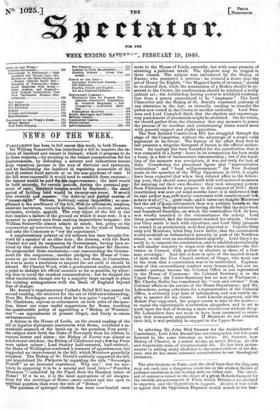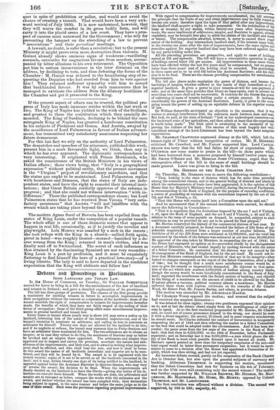The plot thickens in Paris; and the chief hope that
the litigants may not rush into a dangerous crisis lies in the evident failure of personal resolution in the leading men on either side. The stand- ard of contest is raised in the shape of a great Reform banquet for the twelfth arrondissement of Paris, which Ministers are pledged to suppress, and the Opposition to support. At first it was made to appear that the Opposition Deputies would march to the ban-
quet in spite of prohibition or police, and would not avoid the chance of creating a tumult. That would have been a very awk- ward revival of July 1830. It is now understood, however, that they will waive the combat in its gross bodily form, and will carry it into the placid arena of a law court. They have a pros- pect of success most untoward for the Government ; who rely for
preventing the banquet on the stretching of a law to prevent associations " and their periodical meetings. A lawsuit, no doubt, is safer than a revolution; but to the present Ministry it might prove even more destructive than violence. M. Guizot already shows ominous signs of weakness—vacillating counsels, entreaties for ungracious favours from seceders, accom- panied by bitter allusions to his own retirement. The Opposition put him to serious inconvenience in the later divisions on the address, by declining to vote, and thus defeating the forms of the Chamber : M. Guizot was reduced to the humiliating step of re- questing the Deputies who bad seceded from him to vote against him! They retained sufficient sympathy with him to accord that backhanded favour. It was by such manoeuvres that he managed to extricate the address from the dilatory hostilities of the Chamber and get it presented to the King.



























